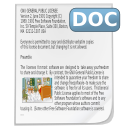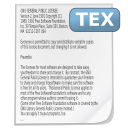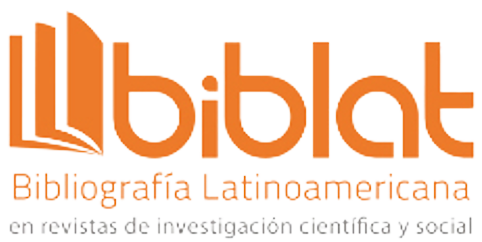Pruebas de Software para Microservicios
Resumen
Los microservicios han surgido como un estilo arquitectónico que ofrece muchas ventajas, pero también plantea desafíos. Uno de estos desafíos gira alrededor de las pruebas, puesto que una aplicación puede tener cientos o miles de servicios que funcionan juntos, y cada uno de ellos requiere ser probado a medida que evolucionan. Para superar este desafío, la automatización adquiere un papel clave, y junto con ella, el uso de herramientas de pruebas eficientes y eficaces.
Descargas
Citas
Aderaldo, C. M., Mendonça, N. C., Pahl, C., & Jamshidi, P. (2017). Benchmark Requirements for Microservices Architecture Research. 2017 IEEE/ACM 1st International Workshop on Establishing the Community-Wide Infrastructure for Architecture-Based Software Engineering (ECASE), 8–13. https://doi.org/10.1109/ECASE.2017.4 DOI: https://doi.org/10.1109/ECASE.2017.4
Estructuración: definimos la lista de candidatos, y establecimos los pesos para cada criterio de selección, según su importancia relativa. Además, definimos las características a evaluar por cada criterio. Por ejemplo: el criterio de métrica tiene un peso de 30 sobre 100; si la herramienta genera métricas de trazados y tiempos obtiene un valor de 30, si genera únicamente una de las dos, se le asigna 15, y si no genera ninguna obtiene 0.
Antichi, G., & Rétvári, G. (2020). Full-Stack SDN: The Next Big Challenge? Proceedings of the Symposium on SDN Research, 48–54. https://doi.org/10.1145/3373360.3380834 DOI: https://doi.org/10.1145/3373360.3380834
Arcuri, A. (2019). RESTful API Automated Test Case Generation with EvoMaster. ACM Trans. Softw. Eng. Methodol., 28(1), 3:1--3:37. https://doi.org/10.1145/3293455 DOI: https://doi.org/10.1145/3293455
item BA, K., & Charters, S. (2007). Guidelines for performing Systematic Literature Reviews in Software Engineering. 2.
Gil, D. G., & D’iaz-Heredero, R. A. (2018). A Microservices Experience in the Banking Industry. Proceedings of the 12th European Conference on Software Architecture: Companion Proceedings. https://doi.org/10.1145/3241403.3241418 DOI: https://doi.org/10.1145/3241403.3241418
Gu, G., Hu, H., Keller, E., Lin, Z., & Porter, D. E. (2017). Building a Security OS With Software Defined Infrastructure. Proceedings of the 8th Asia-Pacific Workshop on Systems. https://doi.org/10.1145/3124680.3124720 DOI: https://doi.org/10.1145/3124680.3124720
Harsh, P., Ribera Laszkowski, J. F., Edmonds, A., Quang Thanh, T., Pauls, M., Vlaskovski, R., ... Gallego Carrillo, M. (2019). Cloud Enablers For Testing Large-Scale Distributed Applications. Proceedings of the 12th IEEE/ACM International Conference on Utility and Cloud Computing Companion, 35– 42. https://doi.org/10.1145/3368235.3368838 DOI: https://doi.org/10.1145/3368235.3368838
Hasselbring, W., & Steinacker, G. (2017). Microservice architectures for scalability, agility and reliability in e-commerce. Proceedings - 2017 IEEE International Conference on Software Architecture Workshops, ICSAW 2017: Side Track Proceedings, 243–246. https://doi.org/10.1109/ICSAW.2017.11 DOI: https://doi.org/10.1109/ICSAW.2017.11
Heinrich, R., van Hoorn, A., Knoche, H., Li, F., Lwakatare, L. E., Pahl, C., ... Wettinger, J. (2017). Performance Engineering for Microservices: Research Challenges and Directions. Proceedings of the 8th ACM/SPEC on International Conference on Performance Engineering Companion, 223–226. https://doi.org/10.1145/3053600.3053653 DOI: https://doi.org/10.1145/3053600.3053653
Heorhiadi, V., Rajagopalan, S., Jamjoom, H., Reiter, M. K., & Sekar, V. (2016). Gremlin: Systematic Resilience Testing of Microservices. Proceedings - International Conference on Distributed DOI: https://doi.org/10.1109/ICDCS.2016.11
MARTÍNEZ HERNÁNDEZ, Cristian Fernando. Evaluación de una herramienta de pruebas end-to-end para microservicios implementados en Java y Node. js.
Fowler, M., Lewis, J. (2018). Microservices. 1–15.
Zúñiga-Prieto, M., Insfran, E., Abrahão, S., & Cano-Genoves, C. (2017). Automation of the incremental integration of microservices architectures. In Lecture Notes in Information Systems and Organisation (Vol. 22, pp. 51–68). https://doi.org/10.1007/978-3-319-52593-8_4 DOI: https://doi.org/10.1007/978-3-319-52593-8_4
Las-Casas, P., Mace, J., Guedes, D., & Fonseca, R. (2018). Weighted Sampling of Execution Traces: Capturing More Needles and Less Hay. Proceedings of the ACM Symposium on Cloud Computing, 326–332. https://doi.org/10.1145/3267809.3267841 DOI: https://doi.org/10.1145/3267809.3267841
Derechos de autor 2023 Innovación y Software

Esta obra está bajo licencia internacional Creative Commons Reconocimiento 4.0.
Los autores ceden en exclusiva el derecho de publicación de su artículo a la Revista Innovación y Software, que podrá editar o modificar formalmente el texto aprobado para cumplir con las normas editoriales propias y con los estándares gramaticales universales, antes de su publicación; asimismo, nuestra revista podrá traducir los manuscritos aprobados a cuantos idiomas considere necesario y difundirlos en varios países, dándole siempre el reconocimiento público al autor o autores de la investigación.
























